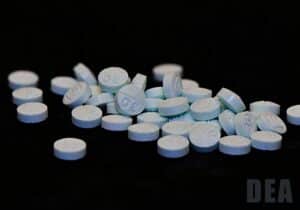Alcohol withdrawal manifests a variety of symptoms and progresses through different stages, influenced by the individual’s alcohol consumption history. Recognizing these symptoms and comprehending their causes is vital. Given the potential dangers of alcohol withdrawal, being aware and seeking appropriate treatment is essential. This treatment includes alcohol detoxification, a crucial step in safely managing withdrawal symptoms. During detox, a range of medications may be administered to alleviate symptoms and aid in the patient’s recovery journey. If you or someone close to you is battling alcohol addiction, our alcohol rehab in Chattanooga, TN provides comprehensive support and treatment. Contact us today to embark on the path to recovery.
What is Alcohol Withdrawal Syndrome?
Alcohol withdrawal syndrome occurs following prolonged heavy drinking episodes. When an individual who has been drinking heavily cuts back or stops their alcohol consumption, they might experience various mental and physical withdrawal symptoms. The intensity of these symptoms can range from mild discomfort to severe health risks.
Occasional drinkers are generally less likely to encounter withdrawal symptoms. However, for those who have experienced alcohol withdrawal previously, the likelihood of its recurrence increases with each attempt to cease or reduce alcohol consumption. This heightened risk highlights the critical need for a thorough understanding and effective management of alcohol withdrawal.
Causes of Alcohol Withdrawal
Alcohol functions as a depressant in the body, slowing brain activity and altering nerve communication. With extended and heavy alcohol consumption, the central nervous system becomes accustomed to the constant influence of alcohol. To counter this, the body maintains an increased level of alertness and continuous nerve communication.
When alcohol consumption is suddenly reduced or stopped, the brain stays in this heightened state, even in the absence of alcohol. This discrepancy leads to the onset of alcohol withdrawal symptoms, as the body reacts to the lack of a substance it has adapted to.
What are the Symptoms of Alcohol Withdrawal Syndrome (AWS)?
Symptoms of Alcohol Withdrawal Syndrome (AWS) can start appearing anywhere from 6 hours to a few days after the last consumption of alcohol. These symptoms typically include two or more of the following:
- Shaking or tremors.
- Anxiety.
- Nausea and vomiting.
- Headaches.
- Rapid heartbeat.
- Sweating.
- Irritability.
- Confusion.
- Sleep disturbances, including insomnia.
- Nightmares.
- Elevated blood pressure.
The intensity of these symptoms usually peaks between 2 to 3 days and can persist in a milder form for weeks. Symptoms are often more acute upon waking due to lower blood alcohol levels.
Delirium tremens (DT) is the most severe phase of alcohol withdrawal, marked by:
- Deep confusion.
- Intense agitation.
- High fever.
- Seizures.
- Tactile hallucinations (feeling itching, burning, or numbness that doesn’t exist).
- Auditory hallucinations (hearing non-existent sounds).
- Visual hallucinations (seeing things that aren’t real).
- Profuse sweating.
- Rapid heart rate.
- High blood pressure.
- Fast breathing.
Severe AWS symptoms, particularly those linked to DT, require immediate medical intervention. If you or someone you know is experiencing these severe symptoms, such as high fever, hallucinations, or cardiac issues, it’s imperative to seek urgent medical care, either by calling emergency services or visiting an emergency room.

Stages and Severity of Alcohol Withdrawal
lcohol withdrawal experiences differ significantly from person to person, often influenced by the level of physiological dependency. The intensity of acute withdrawal symptoms can vary from mild to severe, as outlined by the American Academy of Family Physicians:
Stages of Alcohol Withdrawal
- Stage 1 (Mild): Initial symptoms may include headaches, insomnia, anxiety, hand tremors, gastrointestinal disturbances, and heart palpitations.
- Stage 2 (Moderate): This stage might see an escalation of Stage 1 symptoms, along with increased blood pressure or heart rate, confusion, mild hyperthermia (elevated body temperature), and accelerated, irregular breathing.
- Stage 3 (Severe): This stage includes Stage 2 symptoms, plus more serious effects such as visual or auditory hallucinations, seizures, disorientation, and impaired attention.
Recognizing these stages is crucial for understanding the seriousness of alcohol withdrawal and the need for proper medical intervention.
Timeline of Alcohol Withdrawal Symptoms
The intensity and nature of alcohol withdrawal symptoms greatly depend on your individual drinking history and the amount consumed. The following is a general guideline for the expected timeline of withdrawal symptoms:
6 Hours After Last Drink
Typically, mild symptoms begin to surface around 6 hours after consuming your last alcoholic drink. These initial symptoms may include:
- Feelings of anxiety.
- Shaky hands.
- Headaches.
- Nausea and vomiting.
- Insomnia.
- Sweating.
12-48 Hours After Last Drink
In this phase, you might experience more severe symptoms. Hallucinations, which often occur 12-24 hours after stopping alcohol, and seizures within the first 48 hours are common. These hallucinations can be visual, tactile, or auditory, leading you to sense things that are not there.
48-72 Hours After Last Drink
The onset of Delirium tremens (DTs) usually happens within 48 to 72 hours post the last drink. DTs are recognized as some of the most serious withdrawal symptoms, characterized by:
- Intense and vivid hallucinations and delusions.
- Confusion.
- Elevated heart rate.
- Increased blood pressure.
- Fever.
- Profuse sweating.
It is important to be aware that DTs occur in approximately 5% of individuals going through alcohol withdrawal. For those who experience DTs, the symptoms are notably severe and necessitate immediate medical intervention.
Dangers of Alcohol Withdrawal
Alcohol withdrawal, particularly in its more severe stages, presents significant, and sometimes life-threatening, risks. Delirium tremens (DTs), the most severe form of withdrawal, has a mortality rate ranging from 1% to 4%. Although extreme symptoms are not common, it’s difficult to predict who might experience them.
Studies have pinpointed several risk factors that may increase the likelihood of encountering severe withdrawal symptoms, such as withdrawal seizures or DTs. These factors include:
- Intensive daily alcohol consumption.
- Advancing age.
- A history of DTs or withdrawal seizures related to alcohol.
- Concurrent medical conditions.
- Dehydration.
- Imbalances in electrolytes.
- The existence of brain lesions.
- Abnormal liver function.
It’s crucial to understand that alcohol withdrawal, particularly in its acute forms, can be hazardous, posing threats like seizures and delirium tremens that demand urgent medical intervention. If you or someone close to you is experiencing symptoms of alcohol withdrawal or battling alcohol addiction, we encourage you to call our alcohol rehab in Chattanooga, TN for support and guidance.
Who is at Risk for Alcohol Withdrawal Syndrome?
Those most susceptible to Alcohol Withdrawal Syndrome (AWS) include individuals with alcohol addiction or those engaged in heavy, consistent drinking who are unable to gradually reduce their alcohol intake. It’s crucial to recognize that AWS isn’t exclusive to adults; children and teenagers who consume alcohol excessively are also at risk. Furthermore, your likelihood of experiencing AWS escalates if you have previously had alcohol withdrawal symptoms or needed medical detox due to alcohol use.
According to the Centers for Disease Control and Prevention (CDC), heavy drinking is defined as consuming over eight drinks per week for women and over 15 drinks per week for men. To give a clearer picture, a standard drink is generally considered as:
- 1.5 ounces of distilled spirits or liquor, including gin, rum, vodka, or whiskey.
- 5 ounces of wine.
- 8 ounces of malt liquor.
- 12 ounces of beer.
Binge drinking, a prevalent form of heavy drinking, is characterized differently for men and women. For women, it entails consuming four or more drinks on a single occasion, whereas for men, it’s consuming five or more drinks in one session. Recognizing these standards and being aware of the risk factors are essential steps in effectively identifying and managing AWS.

How Much Do I Have to Drink to Experience Withdrawal?
The onset and intensity of alcohol withdrawal symptoms can significantly vary among individuals. Factors influencing the likelihood of experiencing withdrawal include unique body chemistry, the frequency and quantity of alcohol intake, age, and the presence of any co-existing physical or mental health issues.
If concerns about alcohol withdrawal or its associated risks are affecting you, our alcohol rehab in Chattanooga, TN, offers comprehensive support and care. We are adept at navigating the complexities of withdrawal and are committed to assisting you or your loved one through this challenging journey. Contact us today for guidance and support.
Treatment for Alcohol Withdrawal
Medical detox typically marks the beginning of recovery from alcohol addiction. It plays a crucial role in safely managing withdrawal symptoms but is not designed to tackle the underlying cognitive and behavioral aspects of alcohol dependency. Following detox, there are various treatment modalities and settings available to foster sustained sobriety.
Alcohol Withdrawal Treatment Options Include:
- Inpatient and Residential Treatment: This option involves residing at a treatment center, ensuring round-the-clock support and intensive therapy. It includes both group and individual therapy sessions.
- Outpatient Treatment: This treatment allows you to stay at home or in a sober living environment while attending regular therapy sessions. It offers the advantage of implementing treatment strategies in real-world scenarios, helping you manage daily stressors and challenges.
The Alcohol Withdrawal Process
The experience of alcohol withdrawal is highly individual and can be unpredictable. Current assessment methods do not always enable healthcare professionals to accurately foresee who will experience severe or life-threatening symptoms. Individuals experiencing mild symptoms or those concerned about withdrawal should consult with a physician or healthcare provider experienced in treating alcohol withdrawal.
For those exhibiting moderate to severe withdrawal symptoms, or who are identified as high-risk (such as having a history of severe withdrawal episodes), inpatient treatment at a specialized facility is often recommended. While outpatient care may be adequate for those with mild-to-moderate symptoms, it’s crucial to be aware that escalating symptoms may necessitate a shift to inpatient treatment.
If you or someone you know is grappling with alcohol addiction, our alcohol rehab in Atlanta is equipped to offer comprehensive care, encompassing detox and continued support throughout the recovery process. We encourage you not to delay in seeking help. Contact our alcohol addiction treatment center today to learn more and take the first steps on your journey to recovery.

Alcohol Withdrawal Treatment at Iris Wellness Group
In the serene suburbs of Chattanooga, TN, Iris Wellness Group is a haven for those fighting alcohol addiction. Our alcohol addiction treatment center offer a nurturing environment conducive to recovery.
Our compassionate alcohol outpatient program offers top-tier medical outpatient alcohol detox in Chattanooga, TN, ensuring a safe and effective detox process. Once free from addictive substances, you can seamlessly transition into one of our specialized outpatient treatment programs at Iris Wellness Group, designed to address substance use disorders:
- Outpatient Detox: Combines the convenience of living at home with the effectiveness of regular treatment sessions, ideal for integrating recovery with your everyday life.
- Outpatient Rehab: This program is really flexible, designed to work around your daily schedule.
- Partial Hospitalization Program (PHP): It’s structured but you don’t have to stay overnight. It’s like getting intensive treatment during the day while you live at home.
- Intensive Outpatient Program (IOP): This one offers deeper, more focused care but still lets you keep up with your everyday responsibilities.
- Dual Diagnosis Treatment Program: This is specially for people who are dealing with both addiction and mental health issues at the same time.
Our alcohol treatment programs incorporate a variety of interventions:
- Medication-Assisted Treatment (MAT): This uses medicines to help reduce withdrawal symptoms and the urge to use opioids.
- Psychotherapy: This is all about tackling the mental and emotional factors that play a part in addiction by using CBT or DBT.
- Group Therapy: Here, you’ll get support and learn with others who are going through similar experiences.
- Individual Therapy: You’ll get one-on-one support that’s tailored just for you.
- Family Therapy: This helps fix and strengthen your relationships with family, which is super important.
- Holistic Therapies: These focus on improving your overall health – body, mind, and spirit.
- Aftercare: We’ll keep supporting you even after your treatment is over.
Begin your path to recovery with Iris Wellness Group. Our experienced team is here to guide and support you. For more information or to start alcohol addiction treatment, reach out to our admissions team at 423-441-4650.










